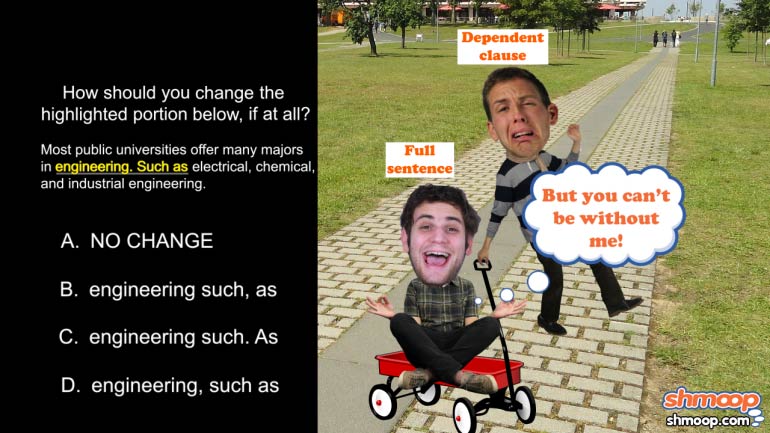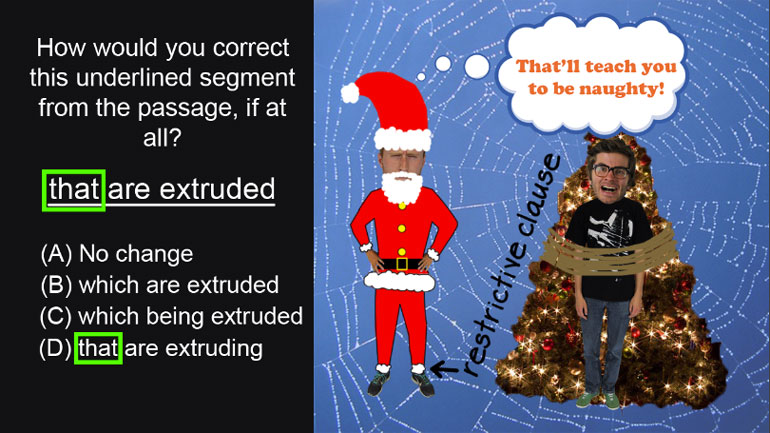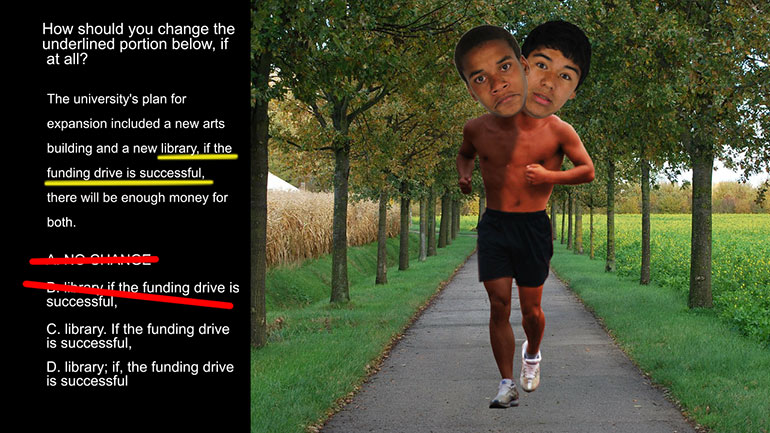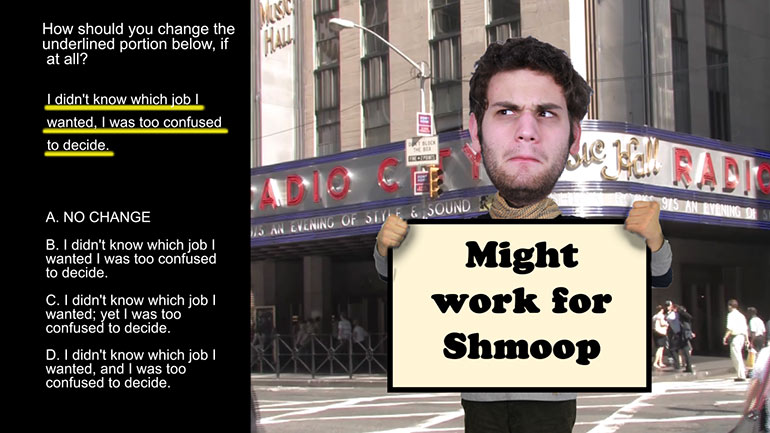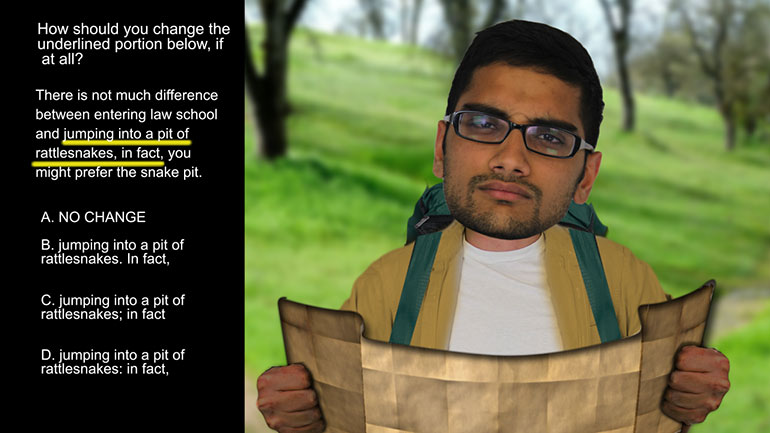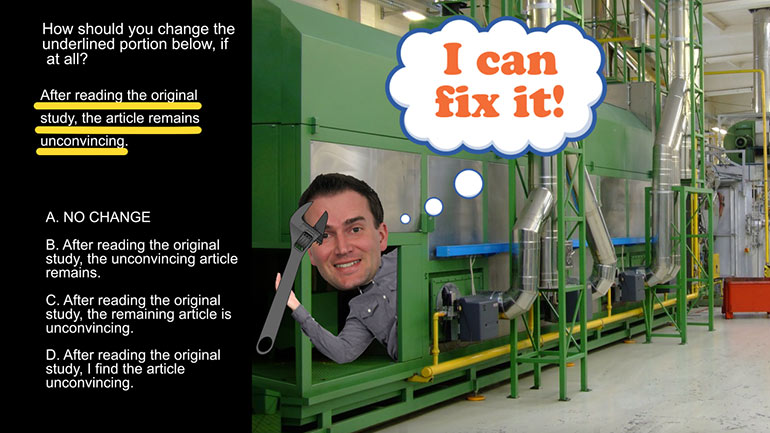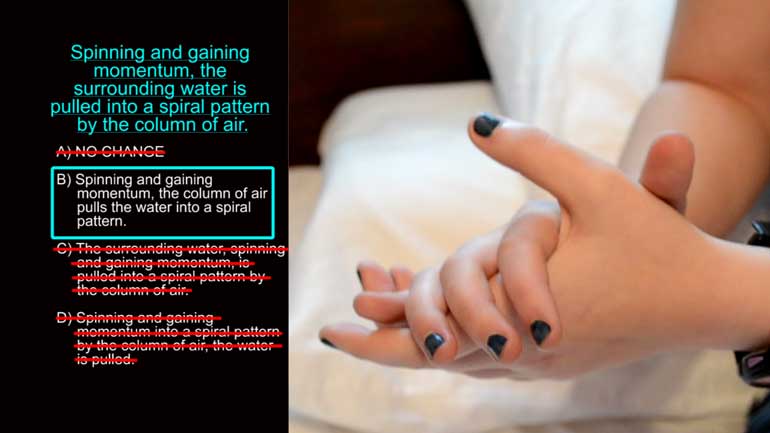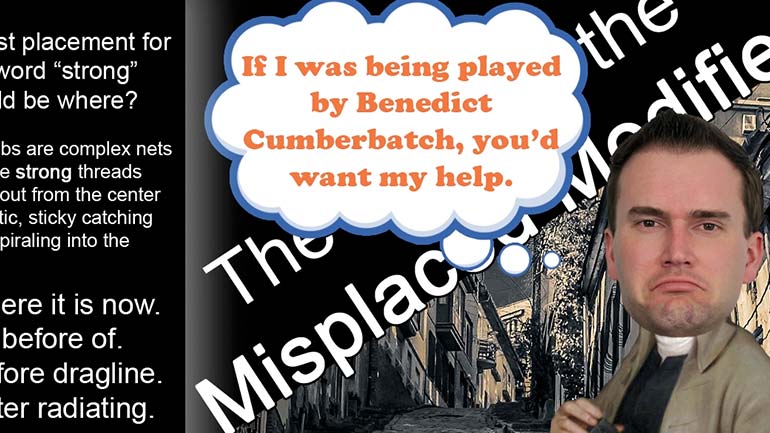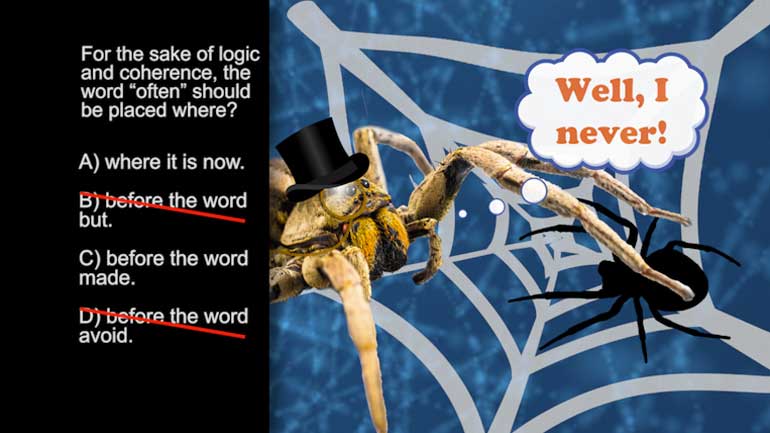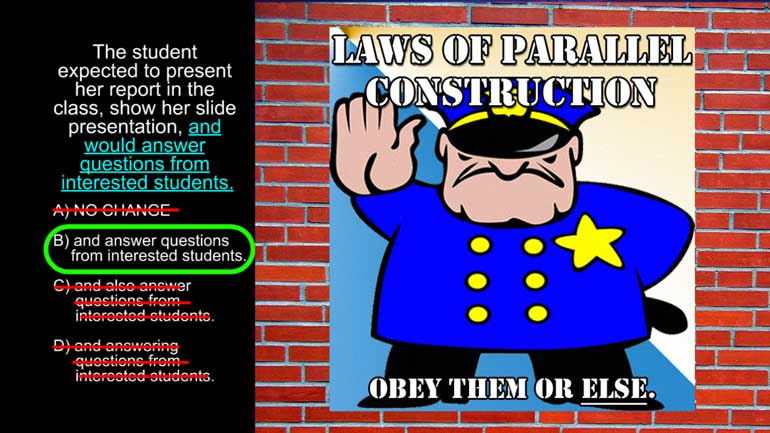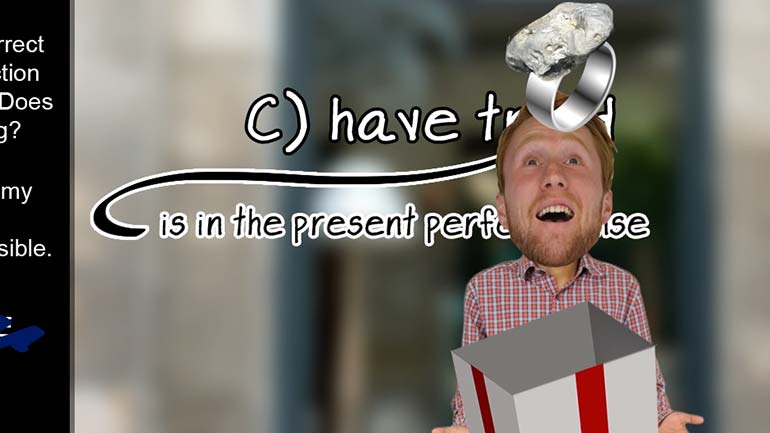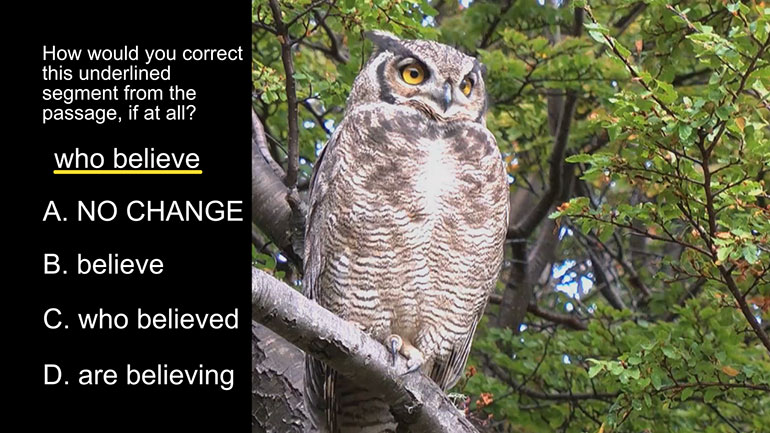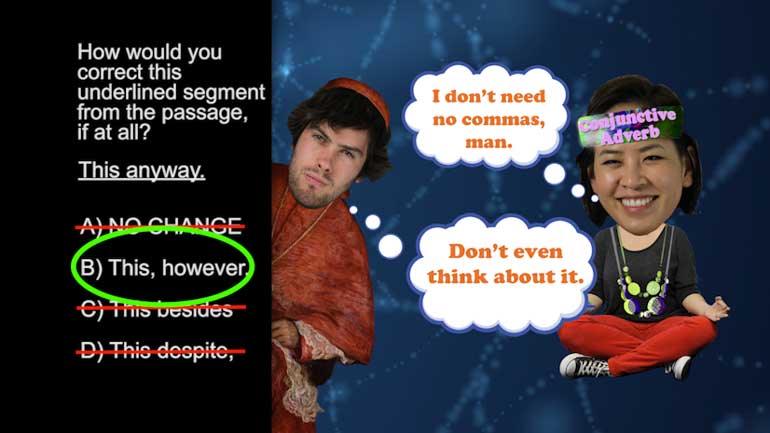ShmoopTube
Where Monty Python meets your 10th grade teacher.
Search Thousands of Shmoop Videos
Sentence Structure Videos 40 videos
ACT English: Sentence Structure Drill 1, Problem 1. Properly punctuating dependent clauses.
ACT English: Sentence Structure Drill 1, Problem 2. What punctuation do we need between these clauses?
ACT English: Sentence Structure Drill 1, Problem 3. Proper word choice for independent clauses.
ACT English 5.13 Passage Drill 173 Views
Share It!
Description:
ACT English: Passage Drill 5, Problem 13. For the sake of logic and coherence, where should the word "often" be placed?
Transcript
- 00:03
Here’s your Shmoop du jour, brought to you by special spider oils.
- 00:07
Remind us not to order these the next time we get a massage.
- 00:30
For the sake of logic and coherence, the word “often” should be placed where??
- 00:35
And here are the potential answers...
- 00:40
This question requires us to pull out a grammatical rule that’s an old trusty standby.
Full Transcript
- 00:45
Here it is: it’s best to place a modifier as close as possible to the word it modifies.
- 00:51
Sure, it’s simple, but sometimes it can be a little tricky to figure out exactly which
- 00:54
word the modifier should describe.
- 00:59
Option (B), for example, is very confused.
- 01:02
It suggests placing the adverb “often” before the conjunction “but.”
- 01:08
Adverbs can only modify verbs, adjectives, and other adverbs, so this one’s a definite no.
- 01:14
P.S. We refrained from making a butt joke just now because it’s beneath us.
- 01:21
Choice (D) does suggest that “often” describe a verb. Too bad it’s the wrong one, though.
- 01:26
By saying that spiders “often avoid” getting entangled in their webs
- 01:32
it actually implies that they sometimes do get entangled.
- 01:35
We know several spiders who would be very offended by this notion, so we’ll cross out (D).
- 01:41
This brings us to options (A) and (C), which might be a little hard to choose between.
- 01:45
Choice (A) claims that “made people wonder often” is fine,
- 01:49
while (C) prefers “often made people wonder.”
- 01:52
Of the two, option (C) is better, because “often”
- 01:56
is trying to describe the verb “made” not “wonder.”
- 02:00
It's not that people wonder often about this question, but rather that when the topic of
- 02:04
spider webs does come up (which probably isn't that often), they sometimes wonder about it.
- 02:11
We slightly resent this question because it’s going to make us wonder about this topic all day.
Related Videos
ACT English: Punctuation Drill 2, Problem 2. Where should the semi-colon be placed?
ACT English: Punctuation Drill 3, Problem 1. How should this sentence be changed so that it is grammatically correct?
ACT English: Punctuation Drill 3, Problem 2. How should we properly hyphenate the words in this sentence?
ACT English: Punctuation Drill 3, Problem 4. Which choice best formats this list of items?
ACT English: Punctuation Drill 2, Problem 1. Which choice of punctuation best completes the sentence?
